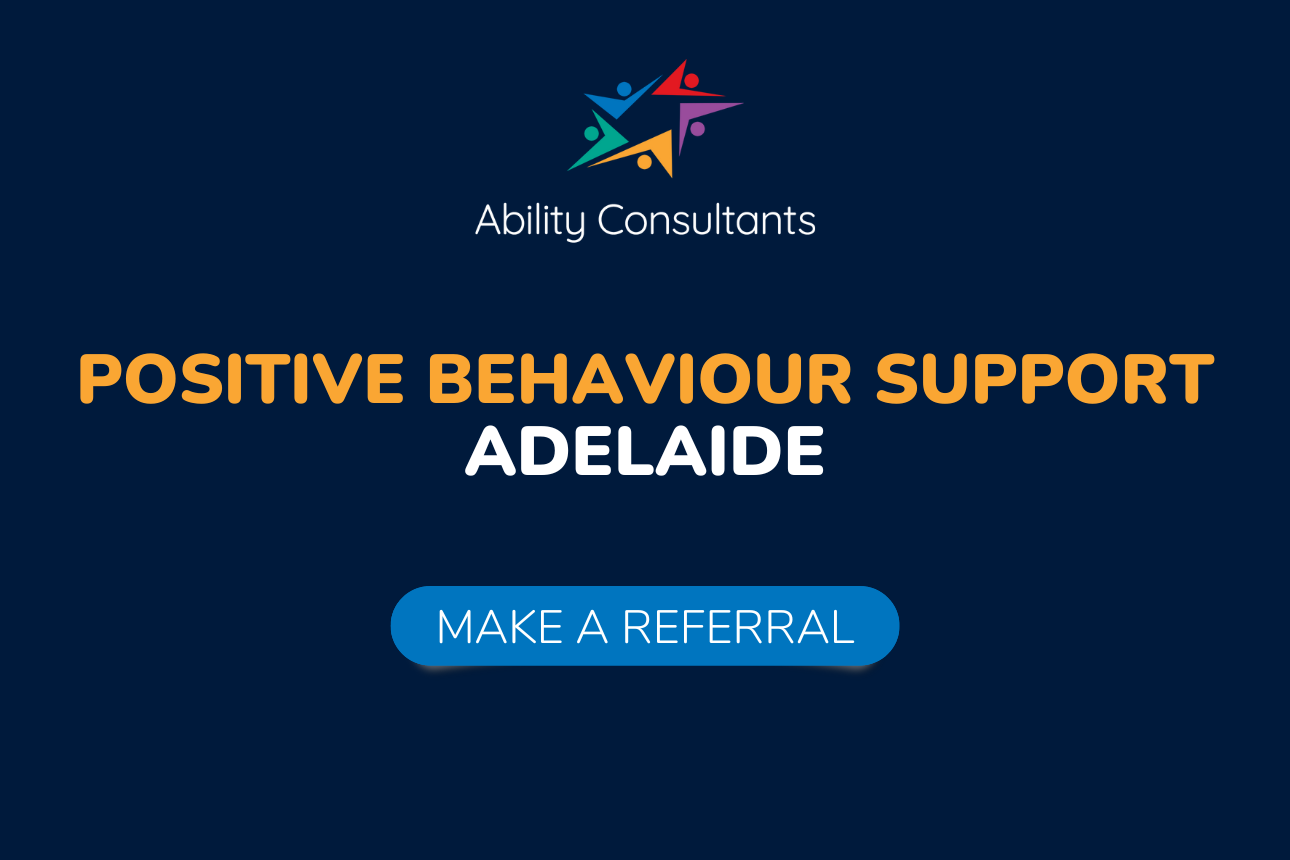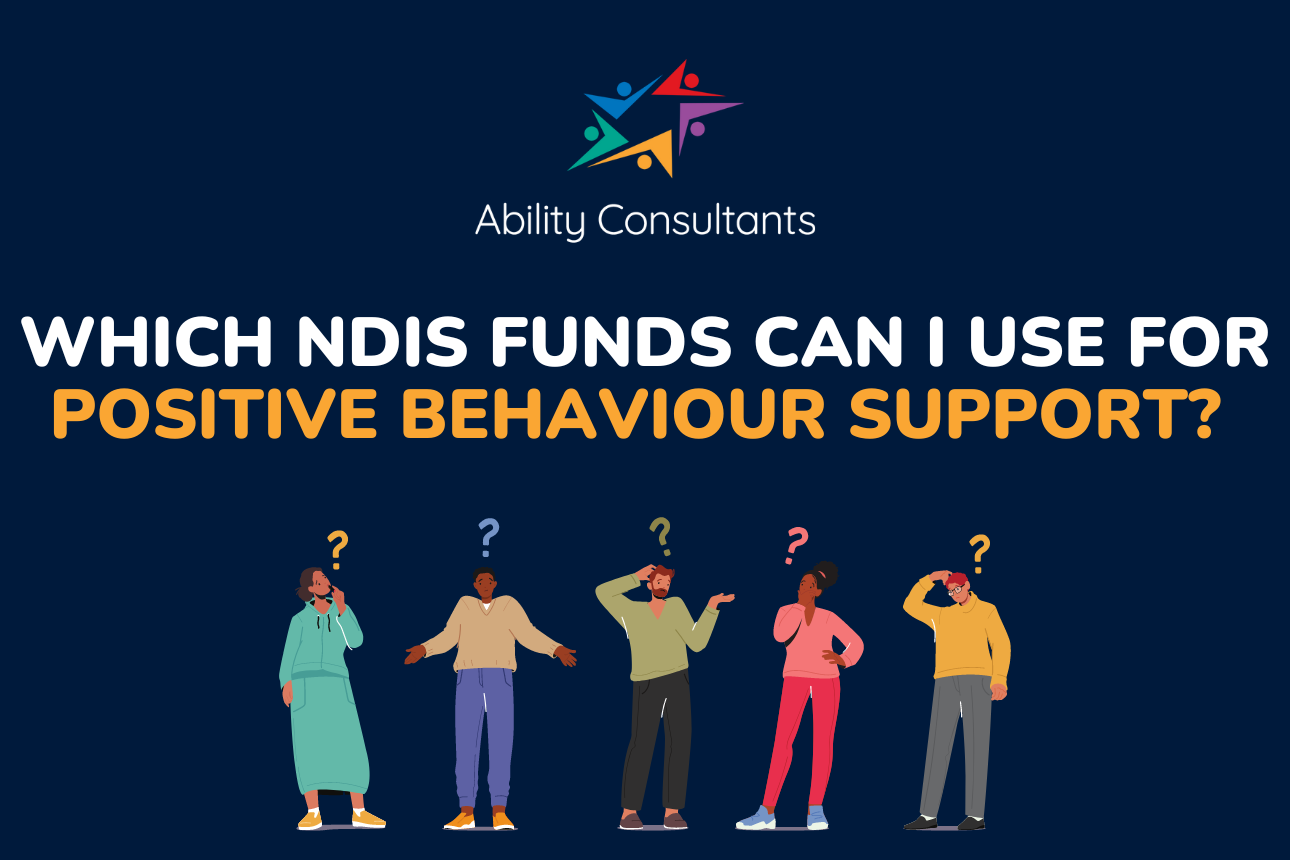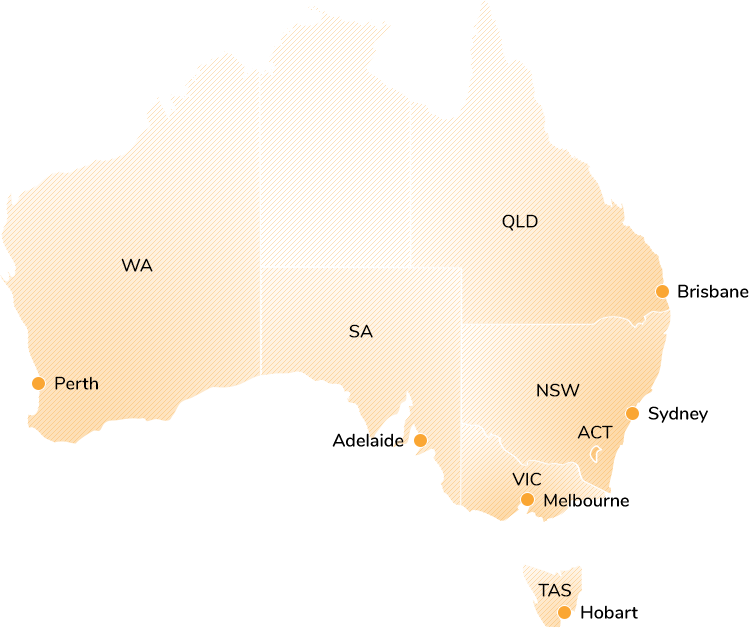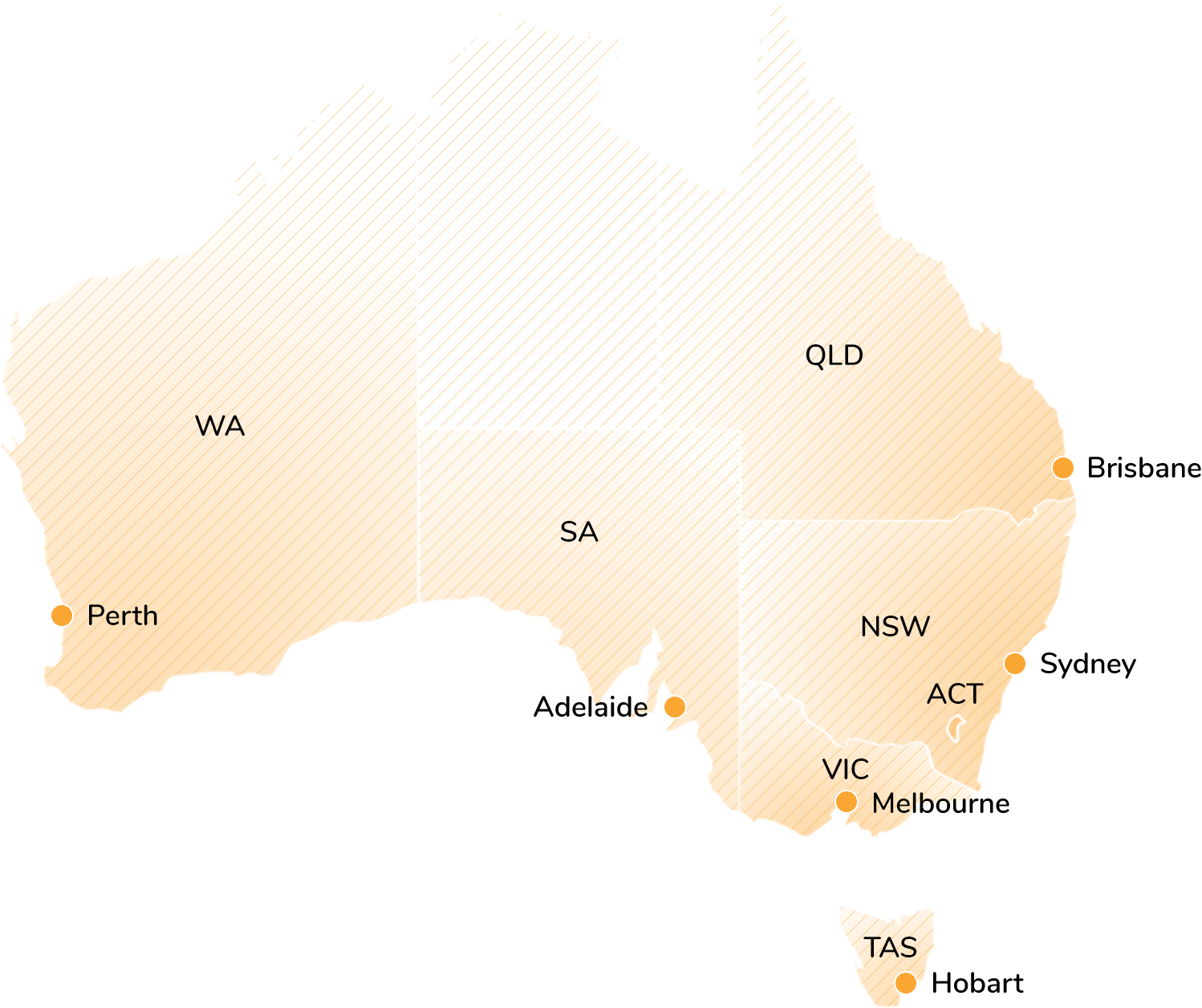NDIS Positive Behaviour Support: Adelaide, South Australia
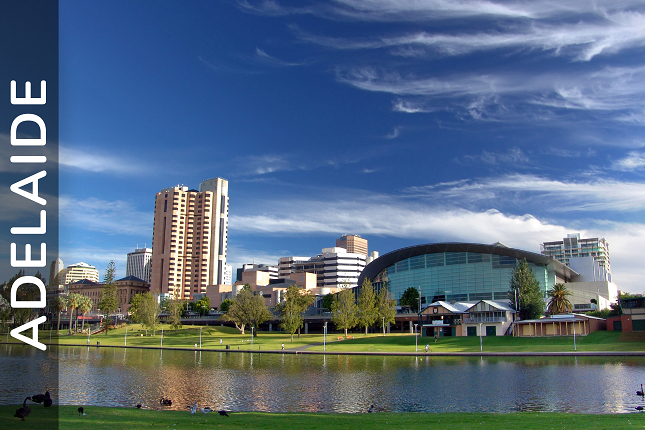
Positive Behaviour Support in Adelaide just got easier to access! Our behaviour support practitioners support NDIS participants throughout the Adelaide metropolitan area. If you’re ready to start Positive Behaviour Support in Adelaide, click here to make a referral.
Positive Behaviour Support in Adelaide
What is Positive Behaviour Support?
All behaviour is communication — this understanding is central to our work in Positive Behaviour Support in Adelaide and throughout Australia. As Behaviour Support Practitioners, our team seeks to understand behaviours of concern and improve a person’s quality of life.
Positive Behaviour Support is all about understanding behaviours and the reasons behind them — we call this the function of behaviour. When we understand the function of a behaviour, it becomes easier to understand what a person is seeking to communicate and to find alternative ways to communicate this message. It also enables the people around them to be better equipped by recognising what a person with disability is trying to communicate and how they can best support them.
Here’s a video where Belinda explains Positive Behaviour Support:
Who can benefit from Positive Behaviour Support in Adelaide?
We provide Positive Behaviour Support in Adelaide for individuals with a range of disabilities, such as intellectual disability, Autism Spectrum Disorder (ASD), cerebral palsy, dementia, psychosocial disabilities and more.
A PBS plan can make a difference in a variety of environments, such as in a person’s home, in the community, school and workplace. PBS can impact on many aspects of a person’s life; in the example below, we share how PBS can help improve a person’s daily living.
Peter is a 25 year old male with cerebral palsy. He’s often visits the gym and is accompanied by his support worker, Mike. Mike has noticed that during recent visits to the gym, Peter has been distressed and has been visiting the gym less frequently.
The gym is an important part of Peter’s life: he previously enjoyed going and he found that strength training helped him in his everyday life. Mike hasn’t been able to work out what has changed and what he can do to help Peter enjoy going to the gym again.
PBS practitioner, Ryan, reviews Peter’s medical and treatment history, and meets with Peter and Mike. They talk about Peter’s goals, what’s important to him and about his experiences at the gym.
Ryan goes with Peter and Mike to the gym to observe and leaves Mike with a short checklist, where he can take note of when Peter is becoming distressed and other details such as what happened prior to and after Peter’s distress. Ryan also requests that Peter visit his doctor and physiotherapist to check if Peter has any injuries or is experiencing physical pain.
Ryan reviews all the information gathered and writes Peter’s PBS plan. Ryan has identified that while Peter enjoys exercising, he struggles to communicate with gym staff and other gym patrons and that this causes him distress.
Peter’s PBS plan includes strategies to support Peter’s communication at the gym. This includes the provision of a communication book, suggestions on how to organise further communication tools including an iPad and communication training for gym staff.
Peter’ PBS plan is implemented and gradually Peter becomes comfortable with visiting the gym again.
It’s important to note that every individual has unique needs and goals and that the work carried out by a PBS practitioner will vary with each individual.
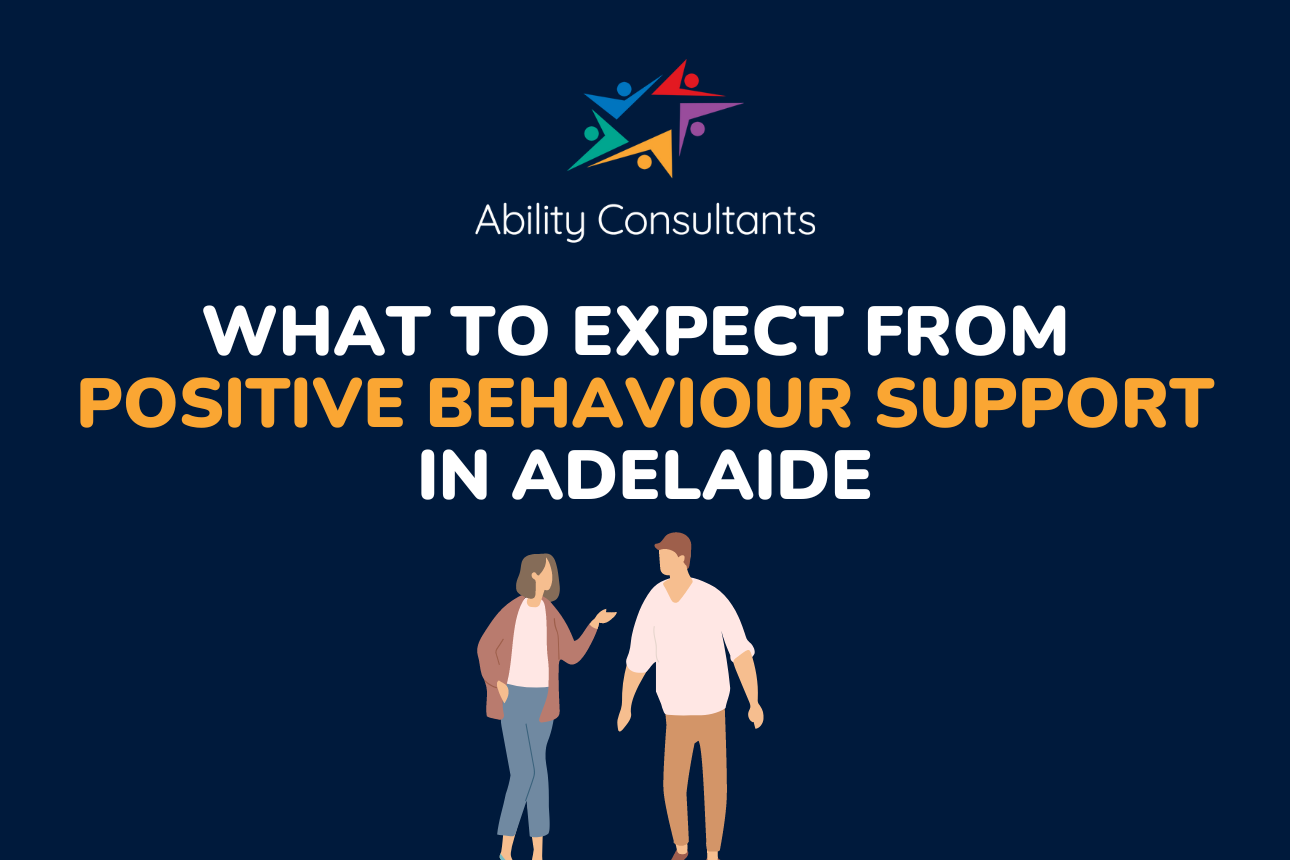
Positive Behaviour Support in Adelaide: What to expect
Once we receive your referral for Positive Behaviour Support, our intake team organises your Service Agreement, which outlines the service we’ll provide. We then allocate a PBS practitioner who will work with you throughout the duration of your service. In some areas such as Sydney, a waiting list might be in place.
Your PBS practitioner will get in touch with you by phone or email to organise an initial meeting at a place that works for you, such as your home.
Our intake team or your PBS practitioner might also request further information, such as relevant reports from your GP, psychologist, psychiatrist, occupational therapist, speech therapist or other members of your support team. Your practitioner will review this information to get a better understanding of you and your needs.
Following this, your PBS practitioner will gather further information through observations, interviews and assessments. This information will help your PBS practitioner identify behaviours of concern, identify the reasons for the behaviour, and develop alternative ways of communicating this message and environmental changes which may assist.
How you can get started with Positive Behaviour Support in Adelaide
Make a referral for Positive Behaviour Support in Adelaide
Anyone can make a referral for Positive Behaviour Support in Adelaide. As an NDIS participant, you can make your own referral. We also accept referrals from parents, family members, support coordinators, SIL providers, other NDIS providers, GPs and other health providers.
Make a referral anytime on our website using our online referral form.
Where we provide Positive Behaviour Support in Adelaide
All our PBS practitioners travel to see their clients, this means we can travel to a location that is convenient for you, such as your home. In Adelaide we provide Positive Behaviour Support in quite a few suburbs such as:
- Central Adelaide and Adelaide Hills including Unley, Norwood, Magill, Malvern, Fullarton, Glenunga, Kensington, Beaumont, Burnside, Campbelltown, Hectorville, Athelstone, Newton.
- North Adelaide including Greenacres, Windsor Gardens, Walkley Heights, Valley View, Hope Valley, Enfield, Blair Athol, Kilburn, Modbury, Ridgehaven, Tea Tree Gully, Surrey Downs, Fairview Park, Golden Grove, Parra Hills, Mawson Lakes, Gepps Cross, Parafield, Salisbury, Elizabeth, Elizabeth Park, Blakeview, Munno Para, Waterloo Corner.
- South Adelaide including Mitcham, Belair, Melrose Park, Glenelg, Marion, Brighton, Edwardstown, Hallett Cove, Aberfoyle Park, Woodcroft, Christies Beach, Seaford and Morphett Vale.
- West Adelaide including Port Adelaide, West Lakes, Woodville, Seaton, Fulham Gardens, Flindon, Kilkenny, Semaphore and Henley Beach.
Do you have questions about Positive Behaviour Support in Adelaide?
If you're in South Australia and you have questions about PBS in Adelaide, our team would be more than happy to help. As a Registered NDIS provider in Adelaide, we can answer your questions about PBS, how we can help you and which NDIS funds you can utilise for PBS.
Please call us on 1300 694 625 or send us an email using our contact form. We’re open Monday to Friday, 9.30am-4pm EST.
Accessible recreation activities in Adelaide
We’re a fan of accessible things to do in Adelaide, from sensory-friendly sessions to free wheelchair hire and customised tours. Here are some great ideas for your next day (or night) out:
- The South Australian Museum in Adelaide is located near the Art Gallery and State Library on North Terrace. The South Australian Museum offers sensory-friendly events before regular business hours, which you can book on their website. The museum offers free sensory backpacks for hire, which includes noise-cancelling headphones, communication cards and a soft toy. You can also find accessibility resources on their website including a sensory map and social story. Auslan-interpreted tours are available and the museum can organise programs adapted to specific needs.
- Adelaide Botanic Garden on North Terrace offers a number of specialised gardens, including the Dahlia Garden, International Rose Garden, the Frist Creek Wetland and more. The Museum of Economic Botany is on site, as well as the Evergreen Deli and Restaurant Botanic. Much of the garden is paved, a changing places facility is available on site and wheelchairs are available to hire.
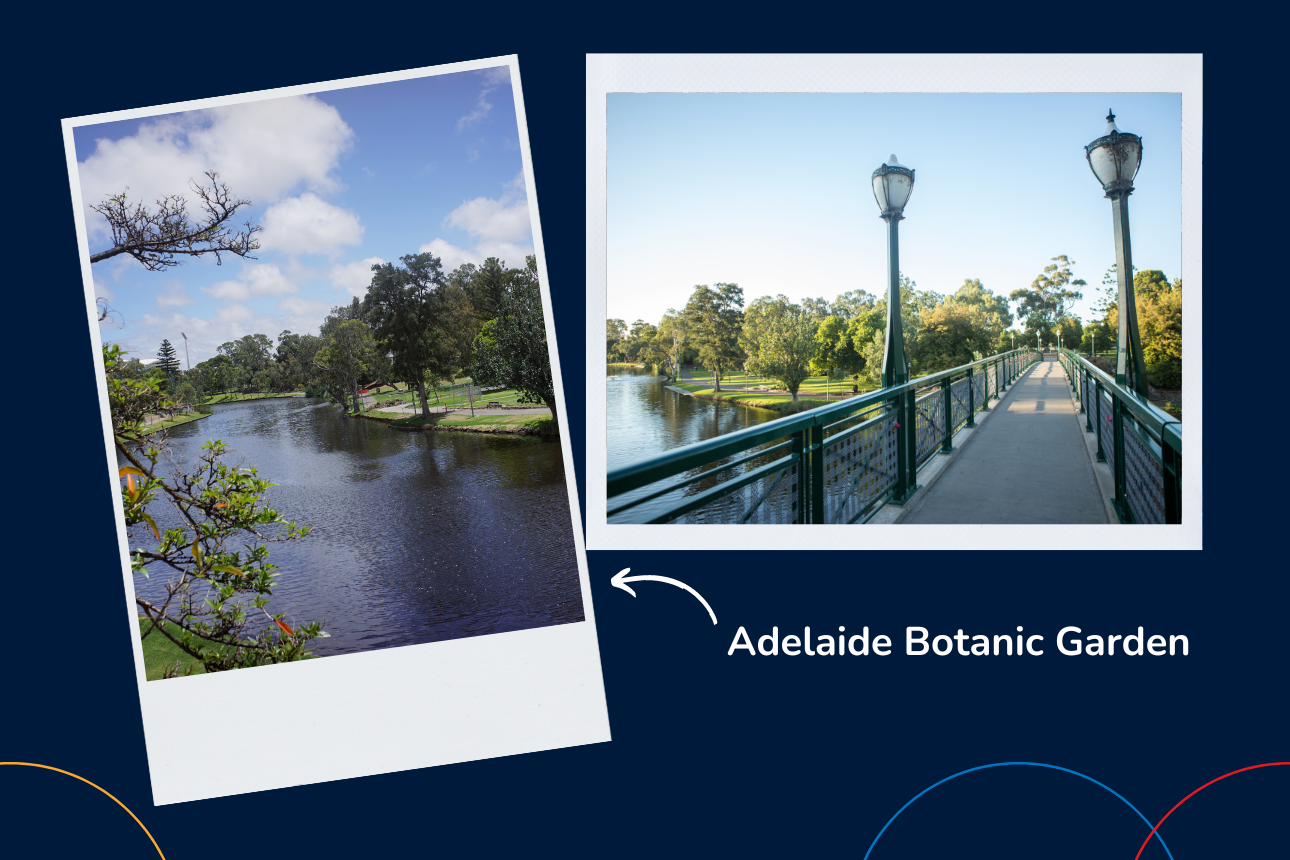
- The Art Gallery of South Australia is located on North Terrace in Adelaide and showcases almost 50,000 works of art. Entry to the gallery is free, with the exception of special exhibitions. For wheelchair users, lifts and ramps are available throughout the gallery and you can access all galleries with a wheelchair. The Art Gallery also offers wheelchairs for hire, free of charge. All visitors can access self-guided audio tours, and the gallery offers Auslan-interpreted tours. The Art Gallery of South Australia offers the Auslan-interpreted Sketch and Discovery tours as part of their Start program.
- Swim at Glenelg beach. Glenelg beach is one of several beaches in Adelaide that offers a beach access mat, beach and floating wheelchairs and beach walkers. Accessible beaches in Adelaide include Henley Beach, Seacliff Beach, Semaphore Park Beach and Semaphore South Beach. Services and mobility aids vary depending on location, please check the Inclusive South Australia website for the latest information.
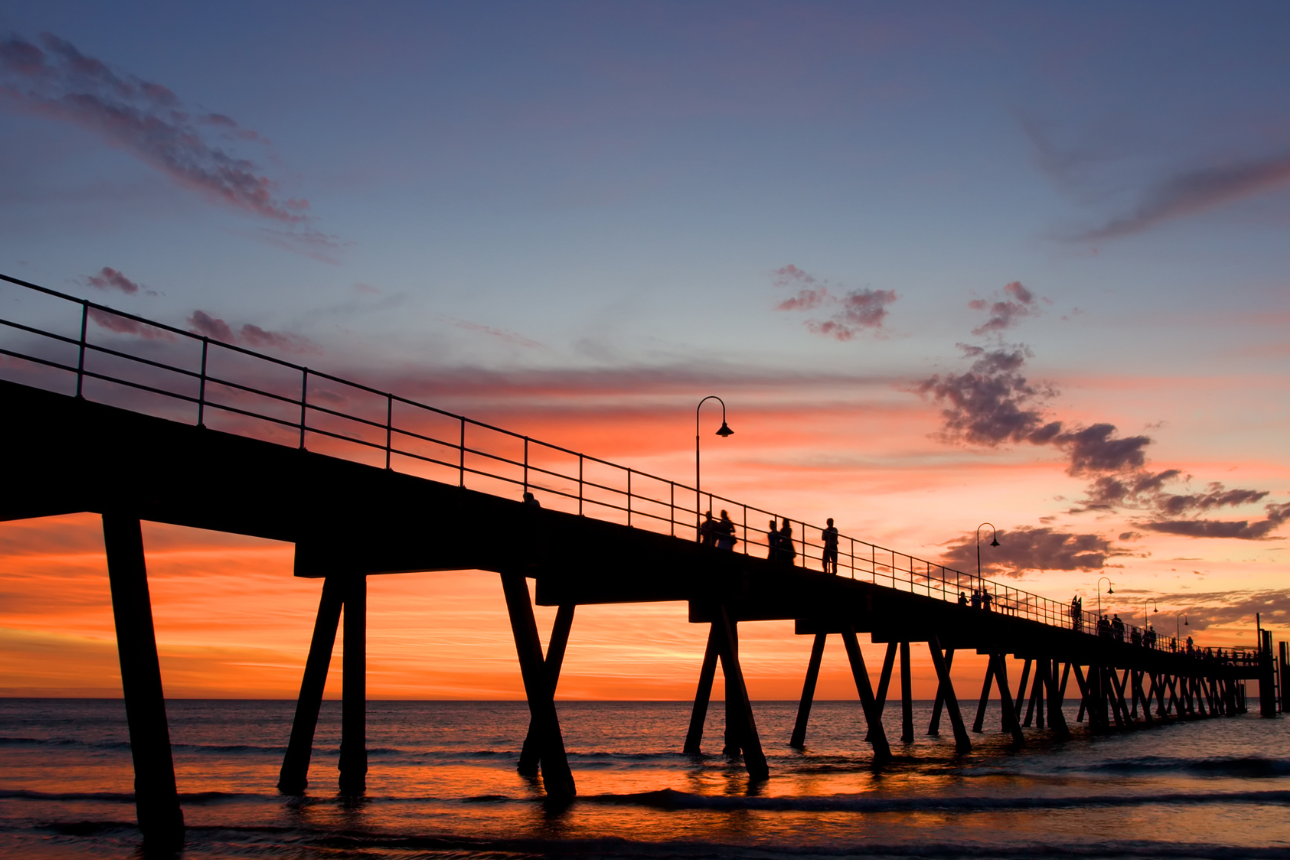
Frequently Asked Questions about NDIS Positive Behaviour Support in Adelaide (FAQ)
Where is our behaviour support clinic in Adelaide?
Ability Consultants is a fully remote company — this means we provide Positive Behaviour Support throughout Australia and we don't have any offices or clinics. This means our behaviour support practitioners are based throughout metropolitan suburbs and regional towns, allowing them to reach more participants and make PBS easier to access. We travel to you, and meet with you in a place that is convenient for you, such as home, supported independent living homes, school, hospital or residential aged care.
Where do we provide NDIS Positive Behaviour Support (PBS) in Adelaide?
We support NDIS participants throughout the Adelaide metropolitan area including Central, North, and West Adelaide as well as a number of suburbs in South Adelaide.
What is Positive Behaviour Support?
Positive Behaviour Support improves quality of life by building new support strategies, skills and behaviours to meet a person's needs and goals. Click here find out more about Positive Behaviour Support.
What is a Positive Behaviour Support Plan?
Click here to read more about Positive Behaviour Support Plans.
Which NDIS funds can I use for Positive Behaviour Support in Adelaide?
We have a couple of articles to help you figure out which funds in your NDIS plan can be allocated to behaviour support, click here to read more about NDIS funds and behaviour support.
What does NDIS Positive Behaviour Support actually look like? What can I expect from my behaviour support practitioner?
These are great questions — find the answers here in our article "What to expect from our Positive Behaviour Support service".
I work in behaviour support or support NDIS participants who participate in Positive Behaviour Support — where can I find your free behaviour support training?
We offer free behaviour support training online. This is available to anyone, anytime — click here to get started with free PBS training. Please note, this training is not client-specific; it is separate from PBS training that your PBS practitioner might provide.
Updated 18 November 2025.



